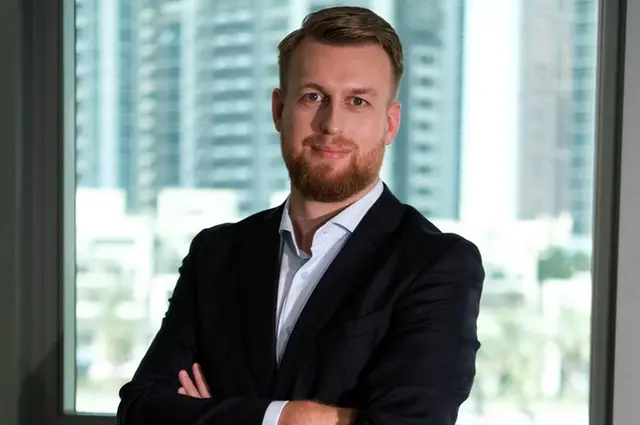The UAE’s precious metals market, including gold, jewellery, gold bars and silver, was valued at AED 8.52 billion in 2020 and it is expected to reach a value of AED 13.21 billion by the end of the decade; this projected increase is predicated on a forecasted compound annual growth rate of 3.66% through 2030. Bas Kooijman, CEO and Asset Manager of DHF Capital S.A., explains the factors that are propelling the country’s upward trajectory.
Bas explained: “The strength of gold, as an asset, is unparalleled and a key reason why savvy investors ensure that they diversify at least 5-10% of their portfolio with it. With the right partner, investors can rest assured that their gold is purchased and stored in a safe but accessible place – enabling liquidity at all times. Over time, gold automatically increases in value but not in quantity; meaning solely investing in gold doesn’t ‘beat the market’ but not having it prevents you from being able to hedge during high inflation times or market crashes.”
The UAE leads the Middle East in gold consumption and the country’s jewellery sector has played a starring role in this achievement. Last year, consumers across the nation purchased a collective 46.9 tonnes of gold; a 38% increase from 2021[1]. Indian investors and residents have helped spearhead the growth of the region’s gold industry as this is an asset with strong historical ties dating back to as early as 4000[2] BC; the notion that gold is the safest investment is a sentiment that Indians live by[3] and they are accordingly purchasing it to hold and transfer.
Approximately 2.80 million Indians live in the UAE; these expatriates comprise over 27% of the population[4]. The country has the highest Non-Resident Indian (NRI) population in the world and around 7.6 million Indians live in the Middle East as a whole[5]. The purchasing power of this demographic is evident in the region’s gold sector as demand increased 150% Year-over-Year (YoY) from 2022 to reach 190.4 tonnes and eclipse the likes of Europe and the Americas[6]. Yet, it is not the only factor contributing to the forecasted growth through the end of this decade.
Although jewellery is the single largest global driver of physical gold[7], the value of gold lies in its established tenure as one of the world’s oldest financial vehicles[8] and its proven stature as a long-term commodity[9]. In a world where digitalization is ever-increasing and overseas turmoil is seeing the currencies of many countries fluctuate or even crash, this valuable metal is set to continue seeing strong demand.
Bas added: “Most people don’t understand gold market forces despite this asset being vital to the world’s economy and demonstrating an ability to appreciate far beyond industrial usage[10]. Like real estate, gold has been a standard of value throughout history – but without the same depreciation that mortgage tax deductions or cost of maintenance cause to a property[11]. Modern assets have emerged in the form of cryptocurrencies but when it comes to investing in and storing precious metals, the expression ‘old is gold’ speaks for itself, and the total trade of gold passing AED 275.25 billion in 2021[12] reinforces this notion.”
With the value of gold linked to supply, demand, and market sentiment, as opposed to political or economic stability[13], recent government-led activations have been initiated to further solidify Dubai’s reputation as the ‘city of gold.’ Bas’ securitization firm, DHF Capital, provides gold trading as a service, among other tools to help regional and global investors reap profits. With Bas at the helm, DHF has provided an annual average ROI of 20% since its inception and investors who have worked with him since the company’s inception have witnessed a 114% ROI to more than double their initial investment.

